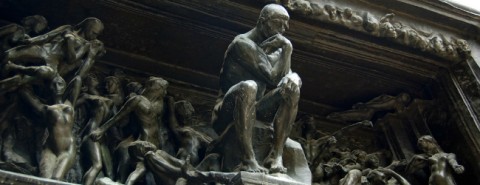Faith-filled reasoning

The National Day of Prayer, which is marked each year in May, has mostly been an occasion for people in high positions to parade their religiosity and for evangelical Christians to mobilize in Washington, D.C. The actual proclamation for the day mentions no particular religious faith and the event coerces no one to pray. Since the list of special days proclaimed by presidents has included Leif Erikson Day and Frozen Food Day, it is perhaps wise not to be greatly stirred either for or against the National Day of Prayer.
But the event has long disturbed the American Humanist Association, which has proposed replacing it with a National Day of Reason. According to the AHA, a National Day of Prayer “demeans millions of Americans who believe that reason, not prayer, is the way to solve the county’s problems.” A sample proclamation for its Day of Reason—observed last month in some municipalities—declares that “the application of reason, more than any other means, has proved to offer hope for human survival on earth, improving conditions within the universe, and cultivating intelligent moral and ethical interactions.”
What’s interesting about this duel of proclamations is how it trades on the notion—widespread in modern culture—that religious faith and reason stand in opposition. That assumption pervades the work of popular antireligion polemicists like Richard Dawkins and Christopher Hitchens (“faith is the surrender of reason,” writes Hitchens) and leads many people to think that religious belief is a matter of private opinion, irrelevant to debates among rational people. Some Christians are themselves unable to resist accepting those terms of argument. For example, a Christian Coalition spokesman denounced the idea of a National Day of Reason as “a blatant assault on Christianity.”




